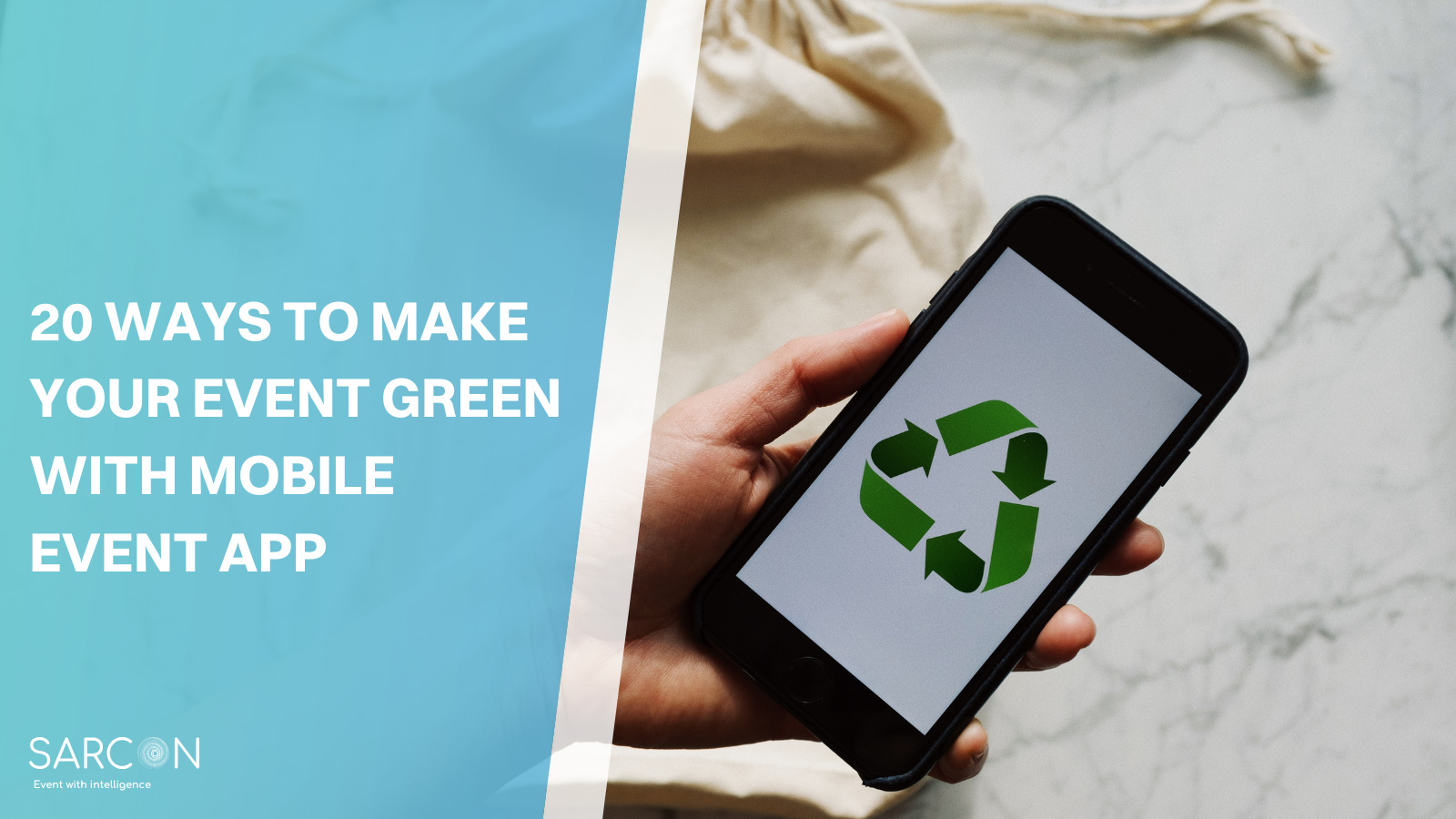The events industry in Dubai is undergoing a remarkable transformation, embracing sustainability to create a greener, more eco-friendly future. This shift is not just about reducing environmental impact but also about setting a global standard for how events can be both glamorous and green. From lush, eco-conscious exhibitions to innovative, waste-reducing conferences, Dubai is leading the charge in sustainable event planning.
The Rise of Sustainable Events in Dubai
Recent years have seen a surge in green conferences and exhibitions in Dubai, each showcasing innovative ways to blend sustainability with world-class hospitality and entertainment. These events serve as platforms for sharing knowledge on sustainability, attracting global leaders and thinkers dedicated to environmental conservation.
The emirate’s journey towards sustainability in the events sector is a testament to its commitment to environmental stewardship and innovation. This shift towards green practices is driven by a combination of government initiatives, corporate responsibility, and a growing public demand for eco-friendly alternatives.
The Shift Towards Green Practices
Dubai’s event industry is reimagining every aspect of event planning, from venue selection to waste management, to prioritize sustainability. The introduction of green venues equipped with solar panels and energy-efficient systems is a leap forward in reducing the carbon footprint of events.
Pioneering Sustainable Event Management
Dubai’s event industry is leveraging cutting-edge technologies and innovative solutions to make events greener. From digital invitations to reduce paper use, to sustainable construction materials for event setups, Dubai’s event planners are setting a new eco-conscious benchmark
Carbon Footprint: A Collective Goal
The collective goal in Dubai’s event industry is to reduce the carbon footprint of each gathering, from small meetings to large international conferences. Efforts include the utilization of renewable energy sources, encouraging public transport and shuttle services for attendees, and implementing recycling and composting programs. These initiatives reflect a broader commitment to environmental responsibility, mirroring Dubai’s aspirations to become a leading green economy.
Leading by Example
The Middle East Event Show, slated for June 2024, further illustrates Dubai’s dedication to integrating sustainability into its events industry. The show commits to environmental sustainability and social responsibility, highlighting efforts to reduce waste, offset carbon emissions, and empower communities through education and purpose-driven partnerships. By leveraging renewable energy sources, the event marks a significant step towards minimizing the environmental impact of large gatherings.
Leveraging Technology for Greater Impact
Emerging technologies such as virtual reality, artificial intelligence, and blockchain are set to revolutionize sustainable event planning. These tools can enhance event efficiency, reduce waste, and create immersive, eco-friendly experiences for attendees. As Dubai embraces these technologies, its events will become even more innovative and sustainable.
In the quest to further minimize the environmental footprint of events, Dubai is embracing virtual platforms as a cornerstone of sustainable event planning. This innovative approach not only aligns with global sustainability goals but also opens up new avenues for inclusivity and global participation.
Virtual events, ranging from webinars and conferences to virtual exhibitions, leverage digital technology to connect speakers, attendees, and exhibitors from across the globe, without the need for physical travel. This shift to digital formats plays a crucial role in reducing carbon emissions associated with transport and lodging, one of the most significant environmental impacts of traditional events.
The Environmental Benefits of Going Virtual
Virtual platforms dramatically decrease the need for physical resources, such as venue space, printed materials, and on-site infrastructure, which traditionally contribute to the ecological footprint of events. By eliminating these physical demands, virtual events significantly lower waste production and energy consumption, making them a highly sustainable alternative.
For e.g Sustainability LIVE Dubai leverages the power of virtual conferences to discuss crucial topics like sustainability strategies, ESG, and supply chain sustainability. This event exemplifies how Dubai is utilizing digital platforms to foster global discussions on sustainability, offering a space for learning, networking, and collaboration without the carbon footprint of traditional events.
Enhanced Accessibility and Inclusion
One of the most notable advantages of virtual events is their ability to transcend geographical boundaries. Participants can join from anywhere in the world, provided they have internet access. This global reach enhances the inclusivity of events, ensuring that knowledge sharing and networking opportunities are not limited by physical location. Moreover, virtual platforms can offer real-time translation services, making events accessible to a broader audience.
Innovative Engagement and Networking Opportunities
Contrary to the belief that virtual events may lack the personal touch of face-to-face interactions, many platforms now offer sophisticated tools for engagement and networking. Features such as breakout rooms, virtual networking lounges, and interactive Q&A sessions facilitate meaningful interactions among participants. Furthermore, gamification and virtual reality experiences can make virtual events even more engaging and immersive.
Sustainability Metrics and Reporting
Virtual events also offer enhanced capabilities for tracking and reporting on sustainability metrics. Organizers can easily measure participation rates, energy savings, and reductions in carbon emissions, providing clear evidence of the environmental benefits of going virtual. This data can be invaluable for reporting on corporate social responsibility (CSR) initiatives and for demonstrating a commitment to sustainability goals.
How Sarcon Enhances Sustainable Virtual Event Hosting
In the context of Dubai’s forward-thinking approach to sustainable event management, particularly through virtual platforms, integrating features and technologies from platforms like Sarcon can significantly enhance the efficiency and impact of such initiatives. Sarcon offers a suite of features tailored to hosting sustainable virtual events, perfectly aligning with Dubai’s goals for environmental responsibility, social inclusivity, and economic growth.
1. Advanced Virtual Spaces: Sarcon’s technology enables the creation of immersive virtual environments that can replicate the experience of in-person events without the associated travel and waste. This approach not only reduces carbon emissions but also makes events more accessible to a global audience, fostering inclusivity.
2. Interactive Features: With features like live polls, Q&A sessions, and virtual networking opportunities, Sarcon facilitates meaningful engagement among participants. This interaction mirrors the collaborative spirit of Dubai’s sustainability-focused events, encouraging dialogue and the exchange of ideas on sustainability practices.
3. Analytics and Insights: Sarcon provides organizers with detailed analytics on attendee engagement and behavior. This data can be invaluable for understanding the impact of sustainability discussions and for planning future events that are even more aligned with participants’ interests and needs.
4. Reduced Carbon Footprint: By hosting events on a virtual platform like Sarcon, organizers can significantly reduce the carbon footprint associated with large-scale physical events. This reduction aligns with Dubai’s sustainability objectives, demonstrating a commitment to minimizing environmental impact.
5. Scalability: Sarcon’s platform is designed to accommodate events of any size, from small workshops to large international conferences. This scalability ensures that sustainability conversations can reach as wide an audience as possible, amplifying Dubai’s role as a beacon for sustainable event planning on the global stage.
Integrating Sarcon into Dubai’s Sustainability Agenda
Incorporating Sarcon’s virtual event platform into Dubai’s suite of sustainability initiatives offers a powerful tool for extending the reach and impact of these events. By leveraging Sarcon’s technology, Dubai can continue to lead by example, showing the world that it is possible to host engaging, impactful, and inclusive events that advance the sustainability agenda without compromising on participant experience or environmental values.
The use of Sarcon’s virtual event technology exemplifies how digital tools can be harnessed to achieve sustainability goals. This includes:
- Eco-friendly Engagement: By minimizing the need for physical travel and materials, virtual events substantially lower the environmental impact of conferences and meetings. This aligns with Dubai’s vision for a sustainable future where digital innovation drives eco-conscious practices.
- Global Access to Events : Sarcon’s platform allows individuals from across the globe to participate without the carbon footprint associated with travel. This inclusivity is vital for fostering a global community committed to sustainability.
- Promoting Sustainable Practices: Through interactive sessions and workshops hosted on platforms like Sarcon, Dubai can promote sustainable practices across industries. This educates and empowers participants to adopt eco-friendly strategies in their personal and professional lives.
The Future of Event Sustainability in Dubai
Looking ahead, Dubai’s event industry is set to continue its trajectory towards sustainability. This commitment is likely to inspire further innovation in event technology, waste management, energy use, and participant engagement, ensuring that events are not only environmentally friendly but also accessible and inclusive.
The city’s approach serves as a model for others, demonstrating how sustainability can be embedded in the fabric of event planning and execution. By prioritizing green practices and social responsibility, Dubai is not only enhancing the experiences of attendees but is also contributing to the global agenda on sustainability.
Conclusion
In conclusion, Dubai’s embrace of sustainable events in 2024 highlights the city’s role as a forward-thinking leader in the global movement towards sustainability. Through a combination of strategic planning, international collaboration, and a commitment to innovation, Dubai is setting new standards for the event industry worldwide. The initiatives and events scheduled for 2024 and beyond are testament to Dubai’s ambitious vision to blend sustainability with urban development, serving as a beacon for cities worldwide aiming to host events that are both impactful and sustainable.
FAQs:
- What makes an event sustainable?
An event is considered sustainable if it minimizes its environmental impact through waste reduction, energy efficiency, and sustainable sourcing, while also providing social and economic benefits. - Can small events also be sustainable?
Absolutely. Sustainability is scalable; even small events can adopt practices such as digital ticketing, local sourcing, and waste reduction to make a positive impact. - What are the benefits of hosting a sustainable event?
Benefits include reduced environmental impact, enhanced brand image, increased attendee satisfaction, and potential cost savings in the long run. - How can technology help in making events sustainable?
Technology can help through digital ticketing, virtual participation options, energy management systems, and platforms for tracking and showcasing sustainability efforts. - Are sustainable events more expensive to organize?
While some sustainable options may have higher initial costs, they can lead to savings through efficiency and waste reduction. Additionally, they can attract sponsors and attendees interested in sustainability, offsetting the costs.



